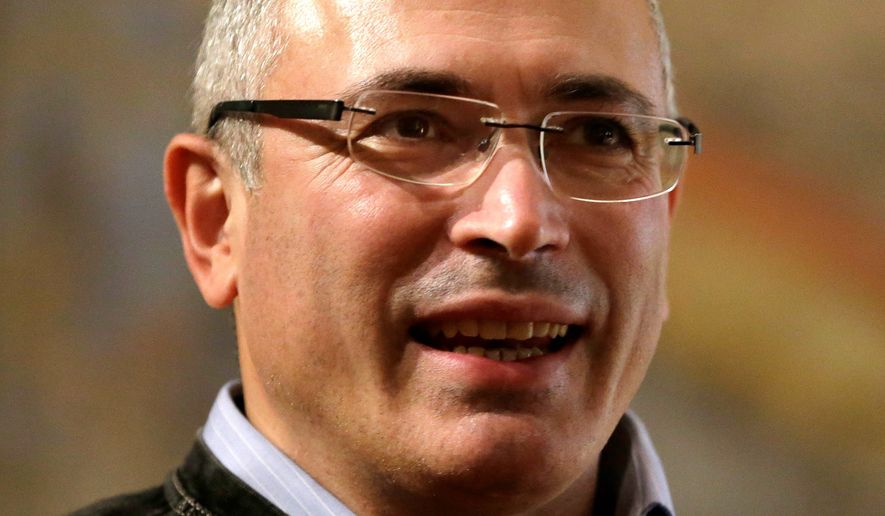The billionaire Russian oil tycoon who lost his assets and freedom after defying Vladimir Putin says the Kremlin has co-opted the country’s legal system and hijacked its armed forces to benefit a plutocratic regime that is destined for collapse.
Mikhail Khodorkovsky, once the wealthiest man in Russia, and who later became the country’s most famous political prisoner, recently spoke at the annual Freedom House awards ceremony in Washington. In his keynote speech, he said Russia’s corruption problems can be traced back to the Soviet Union’s darkest days, when communism collapsed and Russian leaders had the opportunity to successfully transition the country to capitalism but failed to do so.
“A return to social justice in Russia is impossible without repairing the damage that came from an unfair privatization,” he told a small audience. “Privatization was a painful task in which Russia’s further development would not have been possible. But the way it was accomplished led to the emergence of extreme side effects.”
The result, he said, was a system based on power, not equal opportunity.
“Modern Russian society is structured unfairly,” he said. “Whoever has the bigger fists in it has the bigger rights as well. In Russia today, might is right, but it should be the other way around: What is right should have the might.”
According to David Satter, a former Moscow correspondent who was exiled by the Kremlin last year, the Putin regime has effectively hijacked the Russian legal system and uses its courts to target its opponents. He said the Khodorkovsky prosecution was a milestone case that allowed corruption to seep from the Russian federal judiciary to lower-level courts.
“Once the wave from the Khodorkovsky case spread, it spread from the highest federal level to the local level,” he said during a recent lecture to the Washington-based Institute of World Politics. “The result was that thousands of businesses were taken over, and those who resisted ended up with long jail sentences or in pretrial detention waiting for their fate for months and even years.”
Mr. Satter said the Kremlin uses the courts to engage in selective prosecution against its enemies while seizing property for its allies, and that it is common practice to “get a false court decision” in an outside jurisdiction and then bribe local law enforcement to seize desired property.
Russian authorities arrested Mr. Khodorkovsky in 2003, convicted him of tax evasion in 2005, and kept him imprisoned for 10 years. His trials and sentence received widespread criticism from human rights groups including Amnesty International, which said his prosecution was politically motivated.
Mr. Putin has long defended his country’s human rights record, claiming that Russia has no political prisoners and resisting characterizations of Mr. Khodorkovsky as such. Russian opposition leaders say his release was spurred by the Kremlin’s desire to avoid criticism during the 2014 Sochi Winter Olympics.
Since his release, the Russian oil tycoon has revived his foundation, Open Russia, which his shareholders founded in 2001. The foundation was suspended in 2006 after the Russian government seized his oil company’s assets and imprisoned other corporate officers.
Mr. Khodorkovsky said that despite widespread speculation he is preparing to run against Mr. Putin, his efforts will have to come from outside the country.
“It is impossible to run for election in Russia, because there are no real elections in Vladimir Putin’s Russia,” he said.
• Jeffrey Scott Shapiro can be reached at jshapiro@washingtontimes.com.




Please read our comment policy before commenting.